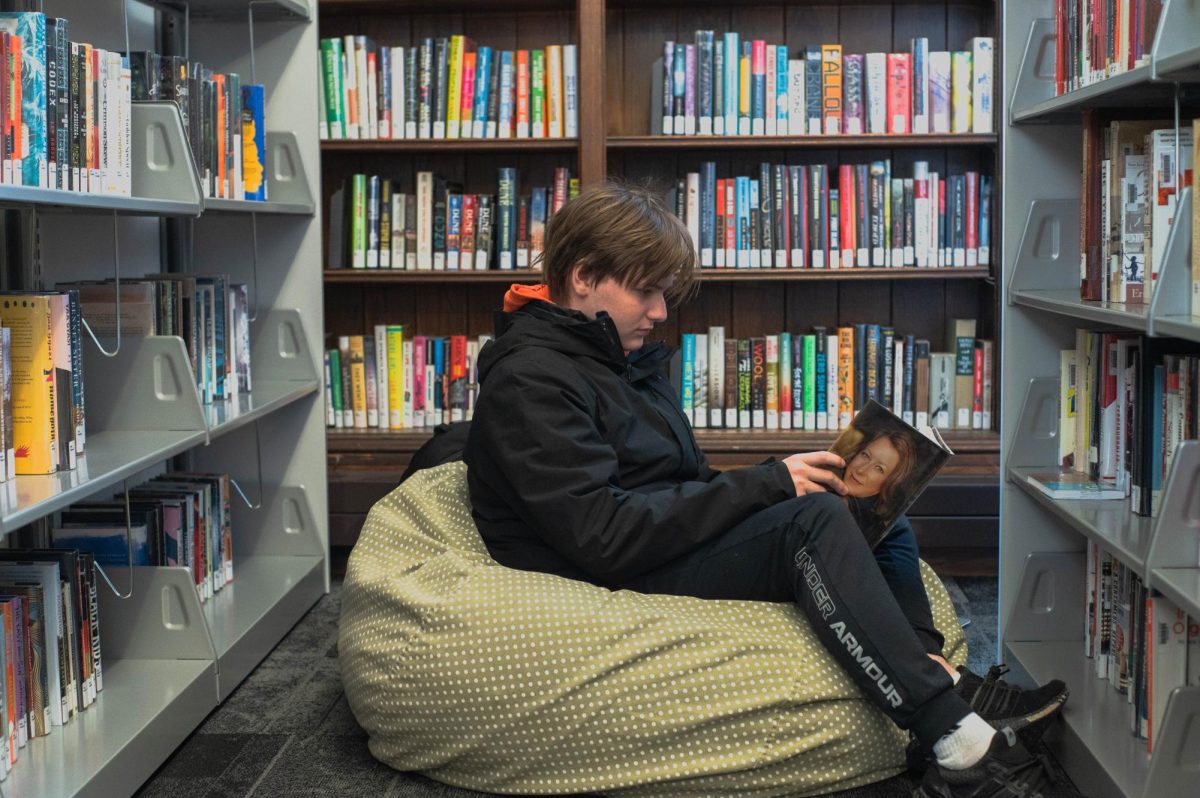Chapters of a history textbook, scientific articles, chapters of a novel, an Instagram caption, a POV on TikTok and scripts in different languages. These reading forms and their variations are things U-High students read daily. Teenagers are reading nowadays — they’re just not reading for pleasure.
This isn’t a new phenomenon. The percentage of teenagers who don’t read for pleasure has risen from 9% in 1984 to 27% in 2014. Another study shows in the late 1970s, 60% of 12th graders read a book or magazine almost every day, and by 2016 only 16% did, while daily social media usage averages about six hours.
The main question running through the minds of these researchers is why aren’t teenagers reading at the same rates they used to?
High school librarian Susan Augustine said in her years here, she has seen a definite decrease in students reading for pleasure, but she has also seen this trend among adults who have come back to reading.
“The thought was not to worry too much if people at this age group are not excited about reading for pleasure because it’s a temporary pause,” Ms. Augustine said. “But I’m not so sure about that now because I know a lot of adults who tell me that they’re no longer able to read fiction because they don’t have the concentration, they don’t have the ability to focus for that long — and they blame it all on the internet.”
Shorter attention spans, which some say are due to social media, have caused a decrease in reading for teenagers.
Sophomore Louis Letinsky says he doesn’t read because it isn’t as interesting as watching things and because it takes more work.
“I like watching things instead,” Louis said. “It’s easier to pay attention to. I don’t have to give that much attention to watching things because it’s kinda just there. I don’t have to do any work.”
Similarly, junior Alex Giles says she doesn’t read for pleasure because it’s not as enjoyable as other media forms are.
Alex said, “But nowadays I just watch things on Netflix or YouTube, or I’m just on social media. I just find that watching videos is more entertaining than reading.”
Once a nonreader like Alex and Louis, sophomore Adnan Werdyani decided that 2024 is his year of change.
“My New Year resolution is to read,” Adnan said. “Because I feel that if I read books, like the ‘Autobiography of Malcolm X,’ I become a better person and think about the world differently. So I’m starting to read inspirational books like that. I think you should get back to reading. It helps your brain, it works your brain and helps you. When I read I feel like my inner emotions, it’s a calming activity to do.”
Like Adnan, junior Zarak Siddiqi finds that reading truly enriches him and helps him focus on the small joys in life.
“I like to improve my process of thinking often,” Zarak said. “I like to go on these little imagination trips. There’s things that a book can give you that other people can’t, you know. I do think that reading has helped my mental health to some extent.”
Zarak also feels books can be a distraction from depressing thoughts that run through his mind when it’s empty.
Senior Sasha Watson has always loved to read and thinks books can help with stress and lack of sleep.
“If I’m on my phone super late, I’m up late because I can’t fall asleep, but reading is super calming,” Sasha said. “And I also think it’s a good technique so if you’re feeling a lot of anxiety or stress about your own life. It’s a very external thing and It’s about other people and other emotions, and I think that it’s very helpful to ground yourself.”
Ms. Augustine finds the research on this topic is still new, and only when long-term studies are released people will know the effects of the internet on attention spans and the lack of reading on the brains of current teenagers. But she does expect there will be a definite effect.
“I think it’s going to affect what people want to do, like what feels good to people,” Ms. Augustine said. “And if you’re used to bouncing around from thing to thing and not getting too deep into anything, it’s uncomfortable to sit still and to go a little deeper, and that’s not going to be what people are going to turn to.”






















































